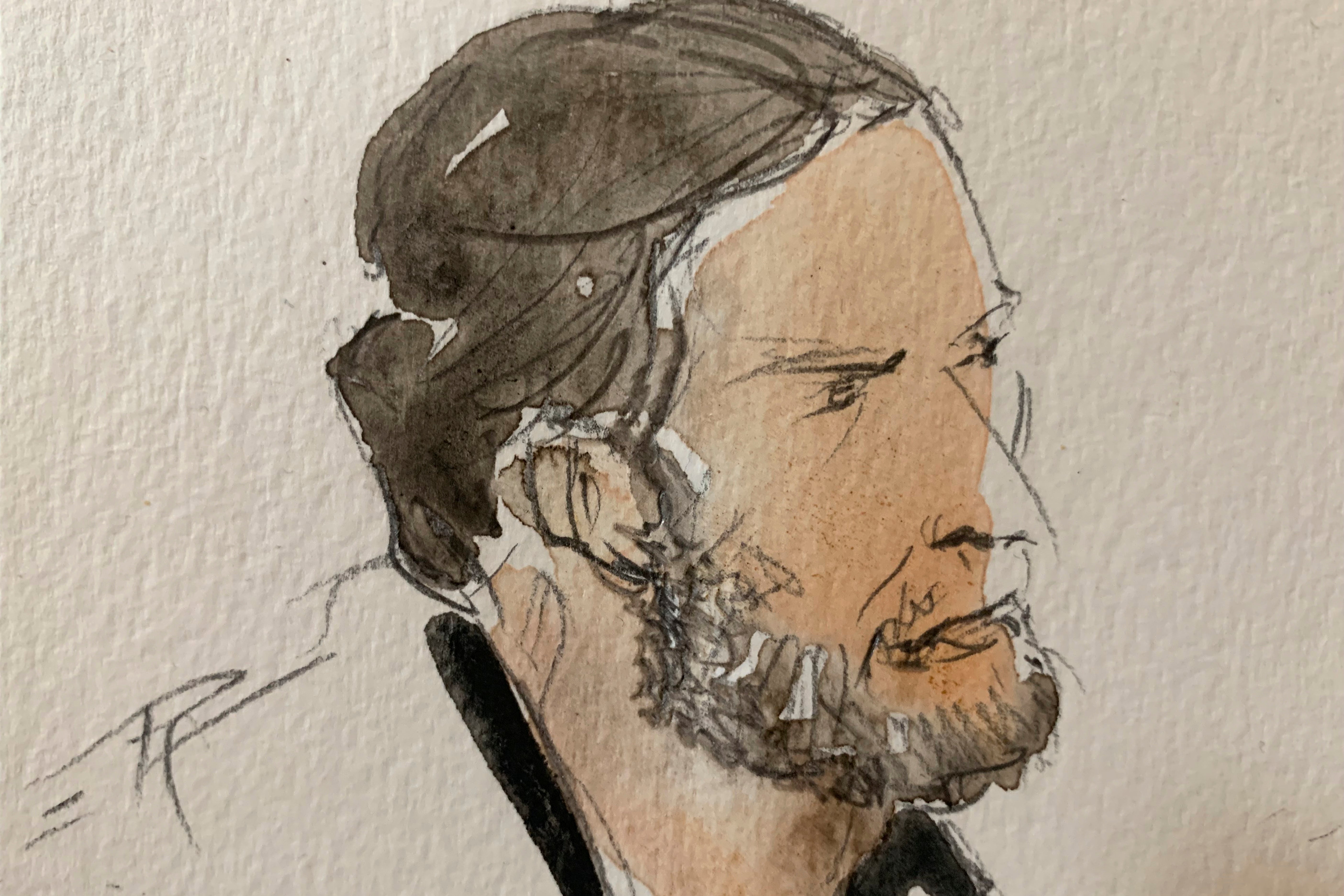Suspects in Paris attacks on stand after victims' testimony
The lone survivor of the Islamic State cell that attacked Paris in November 2015 is coming under public questioning for the first time in France

Your support helps us to tell the story
From reproductive rights to climate change to Big Tech, The Independent is on the ground when the story is developing. Whether it's investigating the financials of Elon Musk's pro-Trump PAC or producing our latest documentary, 'The A Word', which shines a light on the American women fighting for reproductive rights, we know how important it is to parse out the facts from the messaging.
At such a critical moment in US history, we need reporters on the ground. Your donation allows us to keep sending journalists to speak to both sides of the story.
The Independent is trusted by Americans across the entire political spectrum. And unlike many other quality news outlets, we choose not to lock Americans out of our reporting and analysis with paywalls. We believe quality journalism should be available to everyone, paid for by those who can afford it.
Your support makes all the difference.The lone survivor of the cell of Islamic State group extremists who attacked Paris in November 2015 came under public questioning Tuesday for the first time in France, describing a close family life and his neighborhood acquaintance with many of the other defendants seated alongside him behind courtroom glass.
Salah Abdeslam who discarded a malfunctioning explosive vest on Nov. 13, 2015 and fled, is one of 20 men on trial for the coordinated attacks that killed 130 people outside a sports stadium, at crowded restaurants and at a rock concert.
All of the attackers who fired at people or detonated explosive vests that night died. The men now on trial are largely accused of helping with logistics or transportation. Six of the 20 are being tried in absentia.
The hearing on Tuesday followed five weeks of testimony from attack survivors as well as grieving families, including relatives of a man who later killed himself after struggling with the trauma. At the start of the trial, Abdeslam wore all black, spoke harshly and identified his profession as “fighter for Islamic State.” He said the deaths of so many innocent people were “nothing personal.”
On Tuesday, he wore a soft gray cardigan and a pale buttoned shirt and spoke softly.
The testimony this week is laying out the psychological backgrounds of the defendants and started alphabetically with Abdeslam and Mohamed Abrini who was with the group of attackers until the night before the attack. Abrini was later detained in the aftermath of the March 2016 attacks in Brussels carried out by an overlapping group of Islamic State extremists.
One of Abdeslam’s older brothers, Brahim, died the night of the attacks after detonating his own explosives vest at a café. Abdeslam described his remaining family, which includes his mother and younger sister who visit him in prison and two other older brothers, including one who was fired from his municipal job after the attacks.
Abdeslam, a French citizen of Moroccan descent who was born and raised in Belgium, skipped from one job to the next after graduating from technical school, and racked up a series of convictions for traffic offenses and a burglary.
He had known nearly all those accused with him from the Molenbeek neighborhood of Brussels, where he grew up. Abrini was his neighbor and among his closest friends. The two chat regularly on the sidelines of the trial.
“Molenbeek is small. Everyone knows each other,” Abdeslam said. He described going out for drinks with multiple defendants, gambling and nights out at the discotheque.
“I was imbibed with Western values,” he said. When pressed later, he said those values included “living like a libertine, without a thought for God. Doing what you want.”
Abdeslam, who is imprisoned in solitary confinement, said he watched television periodically but primarily was interested in the brief sports activities he is permitted. His cell has two surveillance cameras.
“To live with cameras 24 hours a day, I can tolerate it, thanks to the Lord, but it’s something that could push you to suicide,” he said under questioning from his lawyer. “They were installed to keep me from suicide, but there is no privacy. Even animals are not treated like this.”
Abrini also described a comfortable family life while growing up next door to Abdeslam and with Abdelhamid Abaaoud, who led the 2015 attack, living nearby.
“We did not leave our mother's belly with a Kalashnikov,” he said.